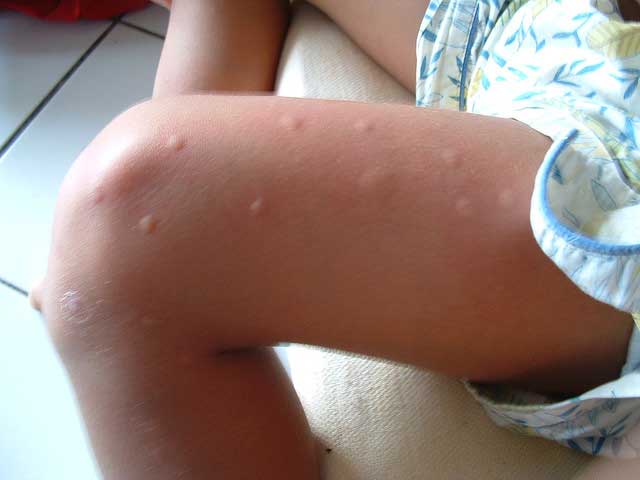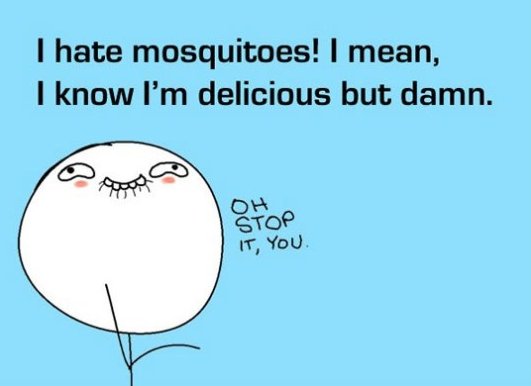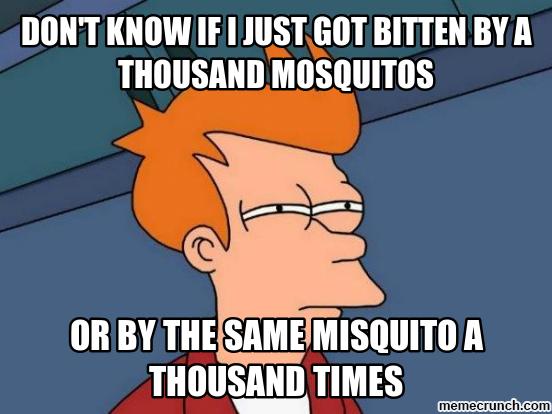It is commonly believed that certain plant species repel mosquitoes and thus protect from bites.
Websites and other sources claim that mosquitoes and other bugs “can’t stand the pungent scent” a certain plant aerates thus making it “an excellent mosquito repellent”.
A friend of mine insists that growing lavender on his balcony under his bedroom window is the reason he never has the pesky bugs in his bedroom.
The truth is that omnipresent claims such as the following are often exaggerated or just nonsense.
“Certain plants will have some effect in repelling mosquitoes from areas of your home and garden.”
Because of public health concern it’s important to express that these and other claims should be taken with a grain of salt.
Almost 700 million people get a mosquito borne illness each year including diseases such as malaria, dengue, Filariasis and West Nile virus.
It would be great if the solution to this problem was to grow some plants but alas, reality is different.
Yes, plants have deterring properties (certain insects seem to dislike the typical lavender scent). Most popular and common claims however are only valid to some extent.
What you should know about mosquito deterring plants
Caveat. It really depends on how plants are used. Plants may repel insects by their scent or via other methods.
The presence of bug deterring plants is often referred to as spatial repellents or attraction inhibitors.
Anyone living in an area with a mosquito abundance knows that having Citrosa or similar plants in your home or in the garden does not suffice in getting rid of the vicious zits.
Let’s take a look at what plants can and can not do regarding the mosquito problem.
There are 3 abilities plants can possess to repel and influence mosquitoes and other pests.
1: Plants may mask scents
- Certain plants such as lavender, thyme, and scented geranium produce volatile oils of which the strong scent masks the plants. This way the plants impeded insects from finding them. People use this to their advantage to confuse the bugs, masking both carbon dioxide and lactic acid exhalations as well as human sweat scent. In other words, mosquitoes may have a harder time finding you. In case of a mosquito abundance this trait may be less effective.
2: Plants may actively repel
- Plants like wormwood, santolina, tansy and lavender produce a bitter or putrid scent that drives insects away. Plant pests such as insects and nematodes don’t like the smell of such plants. For this reason pest-repelling plants are often used in companion planting.
3: Some plants contain substances toxic to the insects
- Certain plants can be used to create insect sprays. For instance chopped chili or the dried flower of pyrethrum and the popular citronella grasses, of which repelling oil is made. Source, ABC Gardening Australia’s Fact Sheet: Pest-Management Plants.
Fact is that plants, by their scent, can make it more difficult for mosquitoes to find you. Certain plants inhibit the signals you send out by which they locate you.
Research by Hoffman and Miller (2003) indicates that,
A reduction of the number of mosquitoes that take flight in the presence of an attractant is accomplished by masking the attraction at cellular level.
However,
Often the presence of plants is not sufficient
In reality, the effects of having these plants close is minimal. Plants can sense being touched and have developed defense mechanisms also called host plant resistance. When untouched plants’ resistance is less manifest.
For more effective repelling, commonly some kind of action needs to be taken.
Even growing a whole lot of repelling plants in close proximity does not make much difference. Iowa State University reports:
Plants release significant amounts of their repellent oils only when their leaves are crushed
But even then, crushing leaves offers minimal protection. Making essential oils, employing smoke of the leaves, using plant based volatiles, using stems and leaves as “strewing herbs”, seem to be more effective.
- You should also be aware that not all repelling plants are created equally. Our botanical allies do not all share a single mode of action. (“a totally effective inhibitor has yet to be discovered”)
- Add that to the fact that surprisingly little is known about how repellents act on their target insects and you will understand how ill-founded some claims are.
- What’s more is that of the almost 3500 different species of mosquito not all will react the same to specific repellents.
Because the presence of plants can do only so much it’s good there are more effective solutions such as Mosquito Dunks and Mosquito Bits (and related products). These help minimize the mosquito problem by effectively killing the larvae.
In the past decades scientific research has increased. The WHO estimates that worldwide mosquitoes (indirectly) cause about 3 million deaths annually and demand for alternative repellents of botanical origin (natural) is growing.
Here’s what modern science has to say about the traditional use of plants to keep mosquitoes at bay.
The history of plants as ‘skeeter beaters’
Plants have been used to repel insects since ancient times. The ability of plants to repel insects comes from their evolution of traits used to deter herbivorous insects from eating them.
Usually, volatile oils (often, aromatic or essential oils) are emanated when the plant surface is injured from an animal’s bite.
These volatile compounds are either offensive to the animal (i.e. insect), are toxic to them, or they confound and confuse their mechanisms used to find edible food sources.
Many species of herbivorous flies are affected by these insect-inhibiting traits. These insect-inhibiting plant compounds are also effective against many biting flies, including mosquitos.
Since dawn of mankind, humans have kept insect-inhibiting plants around their living spaces for the express purpose of deterring mosquitoes.
Often, these were grown both in and around living spaces to serve as in-situ repellents.
- Or, leaves and branches were collected and placed around areas desired to be kept mosquito-free—these were often broken up to free their aromatic oils,
- or they were stewed/boiled to make a concentrated pot potpourri,
- or they were burned to release a mosquito-repelling smoke.
The effectiveness of natural repellents depends on how they are deployed, and deterrence can vary between mosquito species.
The importance of staying mosquito-free was often driven by the fact that many areas of the world are places where serious mosquito-borne illnesses are prevalent—malaria, dengue fever, West Nile virus, yellow fever, various forms of encephalitis, among other diseases.
Plants which have mosquito-repellent properties include some that are cultivated and used by humans, as well as others that mostly just grow in the wild.
The following is a overview of science-backed mosquito repelling plants, how they are used, and their efficacy as repellents.
The best mosquito repelling plants
Basil

Several plants from the genus Ocimum are effective mosquito-repellers. Basil plants are among the most pungent of herbs, and therefore make excellent natural mosquito repellents (to a certain degree, more in a bit).
Basil does have one trait that makes it exceptional for the purpose of warding off mosquitoes.
Basil gives off a scent without the leaves having to be crushed or touched. It’s one of the few herbs that have this characteristic.
Among the many varieties, lemon basil and cinnamon basil seem to have the most potent mosquito repelling abilities.
Two 2009 studies of two different African species of Ocimum were published in the Tanzania Journal of Health Research and the Journal of Cellular Biology, respectively.
Both studies found that essential oils extracted from these plants were highly effective at repelling the malarial mosquito, Anopheles gambiae.
- The studies called for promotion of plant extracts for commercialization in rural Tanzania where whole plants are currently used as repellents against malaria vectors (Kweka, E.J., et al., 2009).
- The previously cited 2011 review in the Malaria Journal parroted very high levels of protection (up to 100%) from direct application to skin of essential oils from Ocimum, spp.
- Placing potted plants around living spaces, along with thermal expulsion of essence from leaves via heating/burning provided between 21-79% protection (Ferreira Maia, M., & Moore, S.J., 2011, March 15).
For temporary protection when in the garden, rub some leaves on your skin releasing its essential oils sticking to your skin.
Wild Sage

Latana camara, known as wild sage, is a plant native to the tropical Americas that has been widely distributed as an ornamental, becoming become invasive in several parts of the world.
- The active component for this plant includes pentacyclic triterpenoids (“Latana camara,” 2014). The previously discussed 2011 review in the Malaria Journal cited levels of protection of up to 95% from direct application to skin of essential oils from Latana, spp.
- Placing potted plants around living spaces, along with thermal expulsion of essence from leaves via heating provided between 27-42% protection (Ferreira Maia, M., & Moore, S.J., 2011, March 15).
Thymus spp. (species)
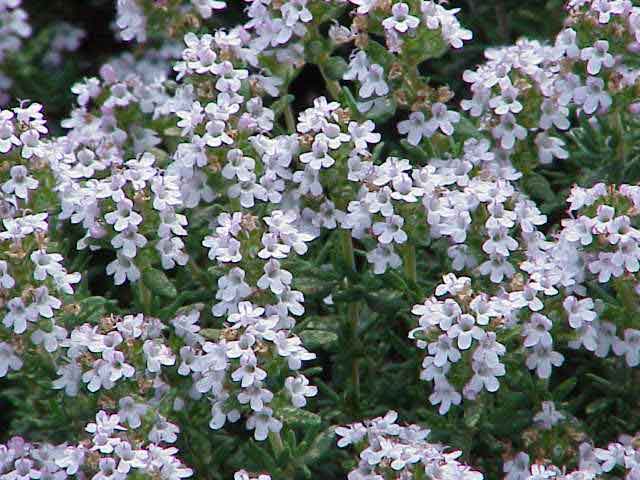
Plants of the genus Thymus are more commonly known as thyme plants. Plants from this genus are known for their use as flavorings/spices and also for their medicinal properties.
Thymol is the essential oil derived from thyme, but there are also other terpenoid compounds that give thyme its aromatic traits, and also contribute to its insect-repelling properties.
- According to the previously cited 2011 review in the Malaria Journal, levels of protection of up to 97% are possible from direct application to skin of essential oils from Thymus, spp.
- Direct burning of leaves provided 85-90% protection for up to 90 minutes (Ferreira Maia, M., & Moore, S.J., 2011, March 15).
Lemon Thyme
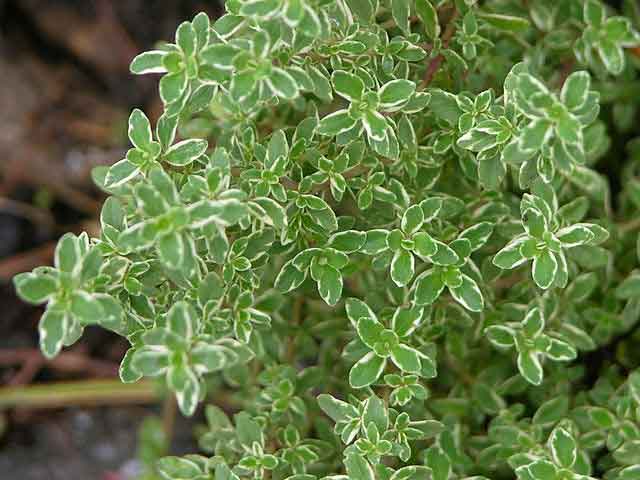
Citrosa, aka the Mosquito Plant is much hyped but if you go by what science has found you’d rather get lemon thyme.
- Research shows that crushed lemon thyme (Thymus X citriodorus) has 62 percent of the repelling activity of DEET. Citrosa up to 40%.
Neem

Neem is derived from the plant Azadirachta indica. Neem is widely advertised as a natural insect repellent, and it has been tested for repellency against a range of disease-vectoring insects. Field studies from India showed promise for neem-based repellents.
According to the previously cited 2011 review in the Malaria Journal, a number of neem-based applications have been examined, with varying results.
- Direct burning of leaves provided 76% protection for up to two hours. One-percent neem oil volatilized in a kerosene lamp provided 80-94% protection from mosquitoes,
- while thermal expulsion of volatiles via heating of leaves provided 25% protection.
- Topical application to skin of 2% neem oil provided 57% protection for up to four hours (Ferreira Maia, M., & Moore, S.J., 2011, March 15).
This PubMed study reports:
The Neem tree (Scientific Name – Azadirachta indica) provides many useful compounds that are used as pesticides and can be used as mosquito repellent/killer.
Eucalyptus
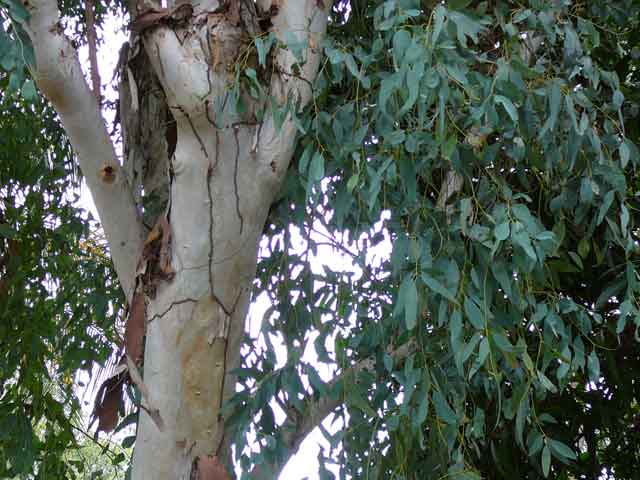
The plant family Myrtaceae contains several species which are known for their aromatic essential oils. Some of the better known species include the lemon eucalyptus tree, Corymbia citriodora, and species within the genus Eucalyptus.
The essential oils from these plants contain p-menthane-3,8-diol (also referred to a PMD) and other terpenoid compounds which have quite remarkable mosquito-repelling qualities.
The CDC added this compound to their effective repellents list and the Repel Lemon Eucalyptus Insect Repellent Spray with 40% eucalyptus oil is a bestseller.
- According to the previously cited 2011 review in the Malaria Journal, levels of protection of up to 100% for several hours are possible from direct application to skin of varying concentrations of essential oils containing PMD.
- Direct burning of leaves and thermal expulsion of volatiles via heating provided protection varying between 48-79% (Ferreira Maia, M., & Moore, S.J., 2011, March 15).
Lemongrass
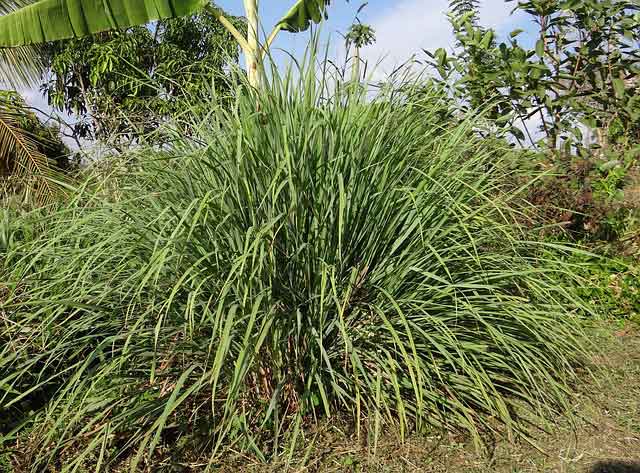
Oil of citronella is derived from the lemongrass plant, Cymbopogon, spp. Citronella is a popular natural insect-repellent, and is used as a component in many outdoor skin-care products, such as balms, sunscreens, repellents, etc.
In 2004, the U.S. Department of Agriculture tested the effectiveness of a number of citronella-based mosquito repellents, and found that these products offered from 0-5 hours of protection, depending on the product used (Cox, C., 2005, Fall). According to the U.S. Environmental Protection Agency (USEPA), citronella oil is considered a Minimum Risk Pesticide.
- A 2011 review of natural insect repellents published in the Malaria Journal cited very high levels of protection (up to 100%) from direct application to skin of essential oils from citronella.
- Thermal expulsion of citronella essence from leaves that were heated or directly burned in rooms still provided between 49-79% protection (Ferreira Maia, M., & Moore, S.J., 2011, March 15).
Just planting some of these plants is not a guarantee for a mosquito-free time. A plant that could be more suited for this task is the next contender.
Catnip
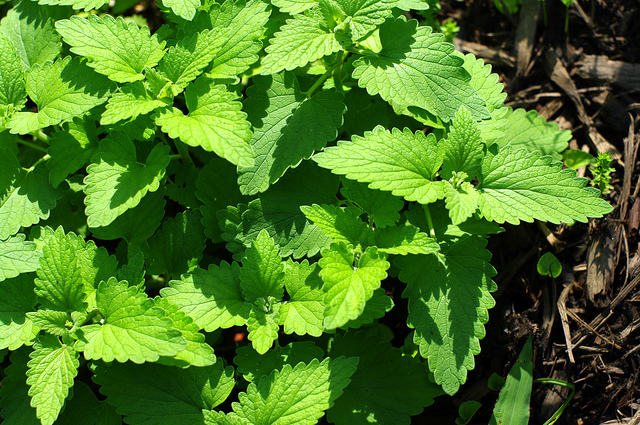
Catnip, Nepeta cataria, produces a terpenoid essential oil, nepetalactone, which has fly and mosquito-repellent properties.
A 2005 study published in the Journal of Medical Entomology compared the effectiveness of an essential oil called nepetalactone to that of DEET, the most commonly-used synthetic insect repellent. (Nepetalactone is the cat magnet, it gives catnip its distinct scent.)
- In a laboratory setting, the catnip product was shown to be more effective than DEET for repelling insects from spaces.
- However, it was less effective than DEET as a topical repellent applied to skin (Bernier, U.R., Furman, K.D., Kline, D.L., Allan, S., & Barnard, D.R., 2005, May).
Marigolds

The brightly colored border plants with their distinctive smell do not only put off certain gardeners. Mosquitoes seem to dislike the plant’s scent too. Or at least essential oils derived from the orange flowering plant. Claims that the scent of the plant itself are not scientifically grounded.
Marigolds roots contain a chemical substance called thiopenes. This plant is valued as a companion plant since it repels white flies, aphids, cabbage maggots among other pests.
A ‘screened cage method’ study with human subjects examining the repellent action of essential oils derived from Marigolds and Myrtle compared to DEET demonstrated that,
- The protection time of 50% essential oils of marigold and myrtle were respectively 2.15 and 4.36 hours compared to 6.23 hours for DEET 25%.
Citrosa, ‘The Mosquito Plant’
Other plants which may have mosquito-repelling qualities include those in genus Citrosa, also known as the “mosquito plant.” Crushed citrosa leaves have 30 to 40 percent of the repellency of DEET according to scientists.
Research demonstrates the plant is ineffective as an attraction inhibitor against Aedes aegypti mosquitos.
“Not only was the plant ineffective at protecting humans against Aedes mosquito bites, the mosquitoes were seen landing and resting on the citrosa plant on a regular basis.”
Other plants
Lavender is another perennial herbaceous plant that contains a pleasant-smelling essential oil which repels mosquitos.
Crushing the leaves of the herb lemon balm (also known as Horsemint) and rubbing the crushed leaves on your skin supposedly provides a measure of protection against mosquito bites. Stone root plants also have mosquito-repelling qualities.
In Tanzanian villages the most commonly used mosquito repelling plants are Basil Mtule (Ocimum suave) and African Blue Basil (Ocimum kilimandscharicum). A study showed that 67% out of 120 households interviewed used these plants.
Chemical analysis of the essential oils of these two plants showed that they were somewhat similarly effective as citronella and DEET in reducing bites.
In another African field study, orymbia citriodora also known as lemon-scented gum, blue spotted gum, lemon eucalyptus and eucalyptus citriodora turned out to be most effective.
In fact, many different types of plants have mosquito repellent action when essential oils or extracts are derived. According this study, crude extract of the Balloon plant or Love in a Puff for instance gives protection against mosquito bites too.
The best mosquito repelling plants
Which plants are the best to repel mosquitoes from your yard or home depends largely on how you are going to use them.
I myself am going to put some big pots of basil in my kitchen this summer. In case this doesn’t get rid of my buzzing foes I will still be making some delicious home made pesto.
I may also grow some lemon thyme or eucalyptus for culinary purposes and to to throw on the barbecue to ward off the flying pests.
Perhaps position some pots of marigolds or horsemint near entrances to prevent skeeters (hopefully) from entering my bedroom window or patio door.
You never know if the scent helps prevent them from crossing these barriers and then of course fingers crossed that the brightly colored flowers don’t attract wasps.
How to use as DIY deterring spray
Besides picking some leaves, crushing them burning them, and rubbing the mashed leaves on your skin there are some other ways to make natural repellents.
- The oil method: this involves covering crushed foilage with a neutral oil like almond, strain the oil, add new foilage and cover with the strained oil again. This should be repeated for a few days. The end product is mixed lotion or with alcohol to make a spray.
- The alcohol method: the crushed foilage is steeped in alcohol and put aside for a few weeks to cure.
Again, an important nuance is that, contrary to DEET,
plant-based repellents do not have this rigorously tested safety record, with most being deemed safe because they have simply been used for a long time. However, many plant-based repellents contain compounds that should be used with caution. (PubMed)
Wrapping it up, do plants work as mosquito repellents?
Yes they do but only up to so far. Many plants offer limited protection against mosquitoes, depending on how they are used.
This may be important for those living in poorer countries which are located in tropical or other areas of the world where mosquito-borne illness are endemic, and where DEET-based repellents are unavailable or too costly to acquire.
Such practices are merely a last resort application driven out of having no other options and certainly not an all-natural, effective solution.
It is important, to emphasize the greater effectiveness of DEET-based repellents; especially for those who might be traveling to areas known for mosquito-vectored diseases.
I haven’t encountered one botanical or natural mosquito repellent that have had lasting effect at all. Slather it on and a few minutes later mosquitoes are already landing right on top of it.
Rubbing some leaves of these plants can be fine during a quick trip in the garden picking some herbs for dinner. It’s effects may be similar to using the Off! Clip On Fan.
Since they generally only protect for a while it’s best not to rely on these plants for hours on end. Rubbing some homemade lemon thyme based anti-mosquito lotion on your skin will not keep you safe for long.
Contrary to what is commonly thought are natural products derived from plant extracts not healthier, organic and more skin-friendly choices.
Even though none of the plant-derived chemicals tested to date demonstrates the broad effectiveness and duration of protection of DEET, a few of them do show repellent activity (Sukumar et al., 1991; Trongtokit et al., 2005).
Especially with the recent introduction of the West Nile virus in the U.S. it all boils down to efficacy. DEET and in lesser degree Picaridin are the most efficient repellents. Botanical repellents need to be re-applied up to 4 times more often.
Plants known for their repellent abilities in the garden or home can be nice additions as quick, natural, short-term repellents but don’t count on them if you take protection seriously.
What do you think?
Do you use plants at home to keep mosquitoes at a distance? Or make your own botanical repellent? Share your thoughts and experiences below.
For more studies on plant based repellents and their effectiveness see this table. Read this post for an overview of effective and useless ways to repel mosquitoes from the yard.
References
Bernier, U.R., Furman, K.D., Kline, D.L., Allan, S., & Barnard, D.R. (2005, May). Comparison of contact and spatial repellency of catnip oil and N,N-diethyl-3-methylbenzamide (deet) against mosquitoes. J Med Entomol, 42(3), 306-311. University of Nebraska / Lincoln.
Cox, C. (2005, Fall). Plant-based mosquito repellents: Making a careful choice. J Pesticide Reform, 25(3), 6-7. Retrieved from BeyondPesticides.org.
Kweka, E.J., Mwang’onde, B.J., Mahande, M.J., Mosha, F.W., Kimaro, E.E., Msangi, S…Mahande, A.M. (2009, April-June). Evaluation of Ocimum suave essential oil against anthropophilic malaria vector Anopheles gambiae s.s after ten years of storage. Tanzania Journal of Health Research, 11(2), 94-96. Retrieved from BioLine.org.
Kweka, E.J., Nkya, H.M., Lyaruu, L., Kimaro, E.E., .Mwang’onde, B.J., & Mahande, A.M. (2009, October). Efficacy of Ocimum kilimandscharicum plant extracts after four years of storage against Anopheles gambiae ss. J Cell Anim Biol, 3(10), 171-174. Retrieved from AcademicJournals.org.
Maia, M.F., & Moore, S.J. (2011, March 15). Plant-based insect repellents: a review of their efficacy, development and testing. Malar J 10(Suppl), S11. Doi:10.1186/1475-2875-10-S1-S11
USEPA. (2014). Minimum Risk Pesticides. Retrieved from EPA.
Images: Marigolds, Neem tree, Basil, Wild Sage, Lemongrass,
